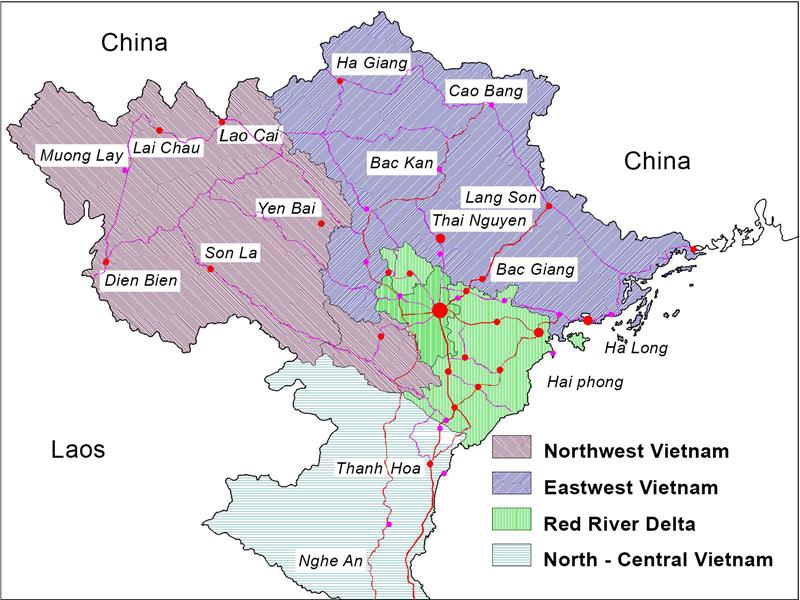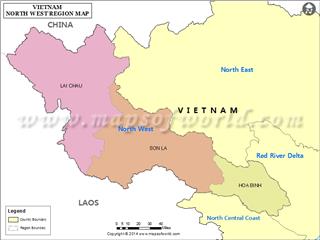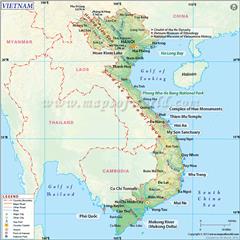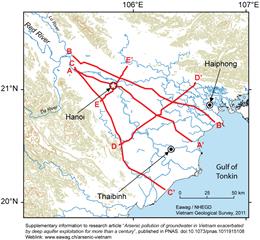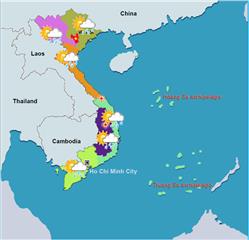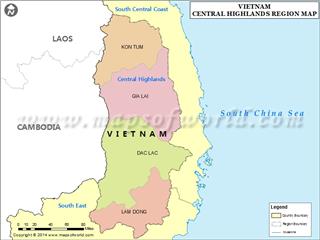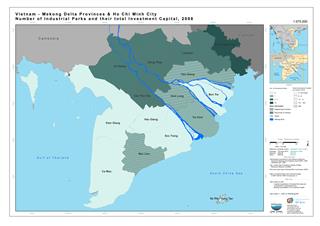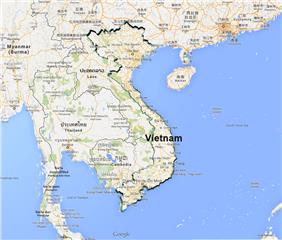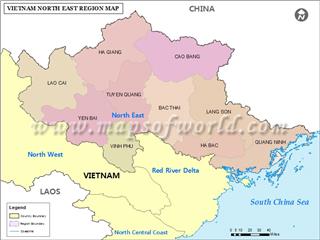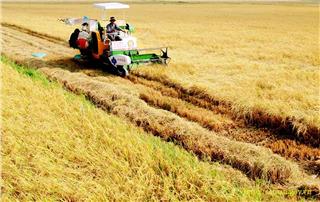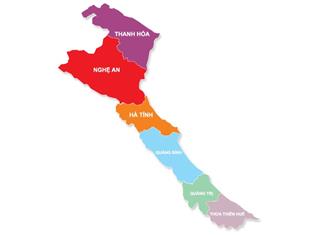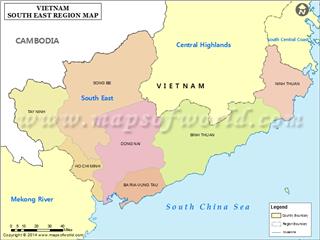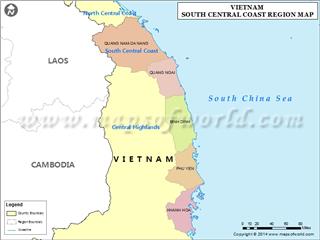Northern midland and mountain geography is fairly special with particular geological structures. This is an important premise for the development of the region.
Northern midland and mountain geography known as Midland and the upstream before 1954 is a mountain and half-mountain region in North of Vietnam. In terms of administration, the region insists of 14 provinces, namely Ha Giang, Cao Bang, Lao Cai, Bac Kan, Lang Son, Tuyen Quang, Yen Bai, Thai Nguyen, Phu Tho, Bac Giang, Lai Chau, Dien Bien, Son La, Hoa Binh. The regional center is Thai Nguyen City. Northern midland and mountainous region owns the largest area in Vietnam geography with 100,965 sqkm, accounting for about 28.6% of the country’s total area.
Geographical location
Midland and northern mountain geography is fairly particular. The system of transportation network have been invested and upgraded increasingly facilitates exchanges with other regions in the country and gradually establishes an opening economy region. Northern midland and mountainous region is adjacent Guangdong, Guangxi and Yunnan of China to the north, Laos to the west, Red River Delta and Central North to the south, and Gulf of Tonkin to the east.
The development of the transport network gradually promotes economic exchanges with Red River Delta and Central North easily; simultaneously, creates favorable conditions in exploring region’s own potentials. Northern midland and mountainous region still hides diverse natural resources and has capability diversifying the economic structure. In addition, the region still keeps the strength of the mining industry and mineral processing development, hydro power, tropical agriculture with both subtropical and temperate products, and owns a powerful potential on developing marine and tourism economy.
Terrain
Northern midland and mountainous region includes Northwestern and Northeastern.
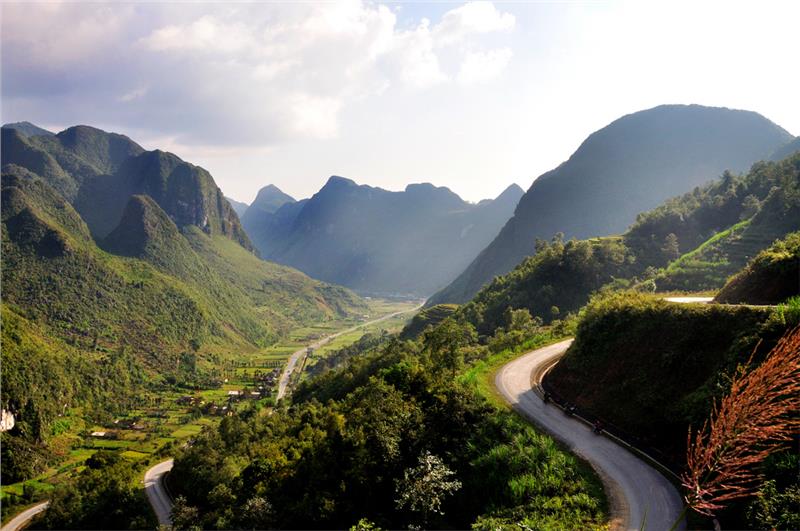
Northwest mainly consists of medium and alpine mountains. This area has the highest terrain, most fragmented and most dangerous in Vietnam. Popular northern midland and mountainous terrain types are high mountain ranges, deep valleys or gorges area, and limestone plateaus with an average altitude. Belonging to this area, Hoang Lien Son range is worth the highest and most voluminous mountain with many peaks over 2500m height, of which Fansipan is the tallest one (with 3143m). Northeast mainly consists of medium and low mountains. Chay River upstream massif owning many high peaks around 2000m is the highest area of the region. From this massif to the sea are bow-shape mountain ranges which are gradually low toward the sea. There are four large bows, namely Gam River, Ngan Son, Bac Son, and Dong Trieu. Transition region from Northeast Mountain to Red River Delta, from Vinh Phu to Quang Ninh is hills with rounded peaks and slopes. This is typical of the midland in the country.
Mineral Resources
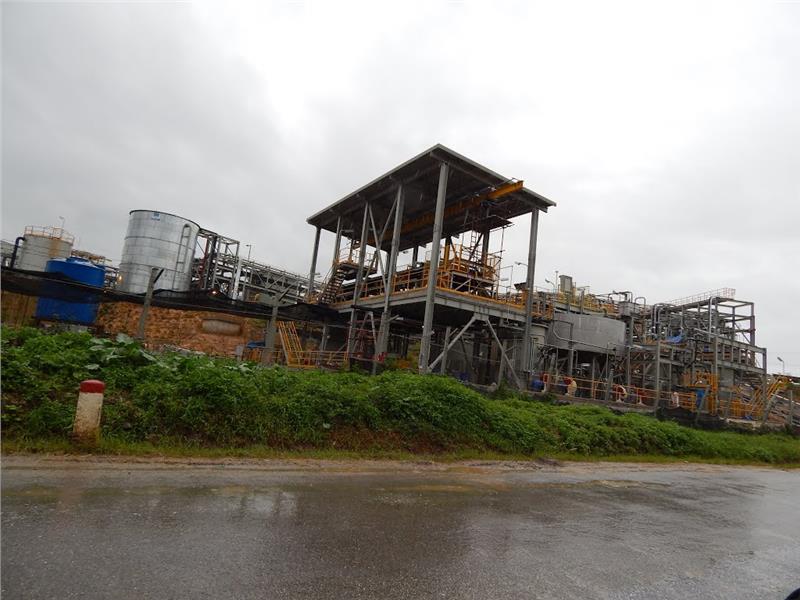
Northern midland and mountainous region is the richest area in mineral resources of the whole country. The major minerals are coal, iron, tin, lead - zinc, copper, apatite, pyrite, clay, limestone, cement, bricks, and refractory bricks...However, the majority of mine operators require modern facilities and quite high cost. Quang Ninh coal area is the center of the most significant coals with the best quality in Southeast Asia. Currently, mining production has exceeded 30 million tons per year. Coal mining is mainly used as fuel for thermal power plants and exports.
Water Resources
Rivers in northern midland and mountain have a considerable hydroelectric power reserve. Red River System (11 million kWW) accounts for over 1/3 hydroelectric power reserve of the country; meanwhile, the number in Da River is nearly 6 million kWW. This large hydro power resource has been exploited. The hydropower development will create new momentum for the development of the region; especially, mining and mineral processing only bases on cheap and abundant power. Northern midland and mountainous region having a large area of land is feralit, limestone and a small portion of ancient alluvial soil (in Midland). Alluvial soil appears along the river valleys and plains in mountainous, such as Than Uyen, Nghia Lo, Dien Bien, and Chongqing...
